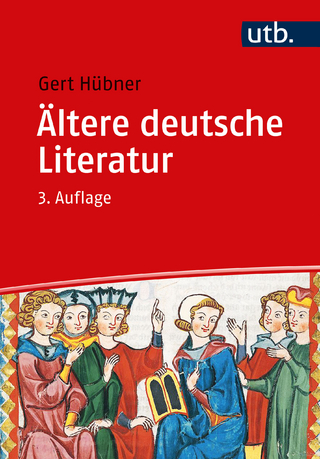
The Reception of Learned Law in Fourteenth- and Fifteenth-Century Frisia
Brill (Verlag)
978-90-04-70992-8 (ISBN)
This book offers the first comprehensive analysis of medieval Frisian law, focusing on the influence of Roman and canon law in the fourteenth and fifteenth centuries. It makes use of recent translations of Old Frisian legal texts to show the evolution of Frisian law and to unveil why the Frisians were motivated to change their traditional laws.
The book covers everything from oaths as evidence in Frisian procedures, to whether Frisian widows could be guardians of their children, to the role the Frisians themselves played in the evolution of their legal system.
Marvin Wiegand, Ph.D. (2023), Vrije Universiteit Amsterdam, is a historian of medieval Frisia. He has worked on translations and has published articles on the legal history of Frisia, including "As good as possible according to the laws" (Peeters, 2023).
List of Figures and Tables
Abbreviations
Glossary
1 Introduction
1.1 A Legal Historian’s Approach to the Past
1.2 Frisia in the Middle Ages
1.3 Frisian Primary Sources
1.4 What is Reception of Law?
1.5 The Five Subjects of this Study
2 Niarkap and the Law of Contracts
2.1 Medieval ‘Law of Contracts’
2.2 Contracts in Frisian Law
2.3 Niarkap in Traditional Frisian Law
2.4 Did Frisians receive the Law of Contracts comprehensively?
2.5 Interaction between Learned Law and niarkap
2.6 Conclusion
3 Proof and Procedure: Oaths, Ordeals and the Emergence of other Evidence
3.1 Frisian Legal Procedures in the High Middle Ages
3.2 Romano-canonical Legal Procedure
3.3 Legal Procedure in 15th-Century Frisian Sources
3.4 Room for New Means of Proof?
3.5 Oaths in the Jurisprudentia Frisica
3.6 End of Ordeals
3.7 Conclusion
4 Theft and the House Search
4.1 An Overview of Theft in Medieval Frisia
4.2 Theft in Roman law—A Brief Overview
4.3 Theft in the Late Frisian Sources
4.4 Obligations resulting from Theft
4.5 House Searches in the 14th and 15th Centuries
4.6 Conclusion
5 The Development of a Frisian Testament
5.1 Last Wills and Testaments
5.2 Succession in Frisian Law and Customs
5.3 The Medieval Testament
5.4 Last Wills in Frisian Law before 1400
5.5 Frisians’ Wills in the 15th Century—What Frisians Distributed
5.6 The Formalities of Making a Testament
5.7 Conclusion
6 Widowhood and Guardianship
6.1 Some Aspects of Medieval Widows and Widowhood
6.2 The Financial Security of a Frisian Widow
6.3 Who Governed the Children?—A Widow-mother as Guardian
6.4 Guardianship over Widows
7 Conclusion: A Frisian Reception of Learned Law
7.1 A Reception of Systems, Methods, and Norms
7.2 Motivations for Reception in Medieval Frisia
7.3 The Development of Reception in Frisia
7.4 A Canonized Frisian Law?
7.5 Future Considerations
Bibliography
Index
| Erscheinungsdatum | 06.11.2024 |
|---|---|
| Reihe/Serie | Medieval Law and Its Practice ; 42 |
| Verlagsort | Leiden |
| Sprache | englisch |
| Maße | 155 x 235 mm |
| Gewicht | 1 g |
| Themenwelt | Geschichte ► Allgemeine Geschichte ► Mittelalter |
| Geschichte ► Teilgebiete der Geschichte ► Militärgeschichte | |
| Recht / Steuern ► Rechtsgeschichte | |
| ISBN-10 | 90-04-70992-4 / 9004709924 |
| ISBN-13 | 978-90-04-70992-8 / 9789004709928 |
| Zustand | Neuware |
| Haben Sie eine Frage zum Produkt? |
aus dem Bereich


